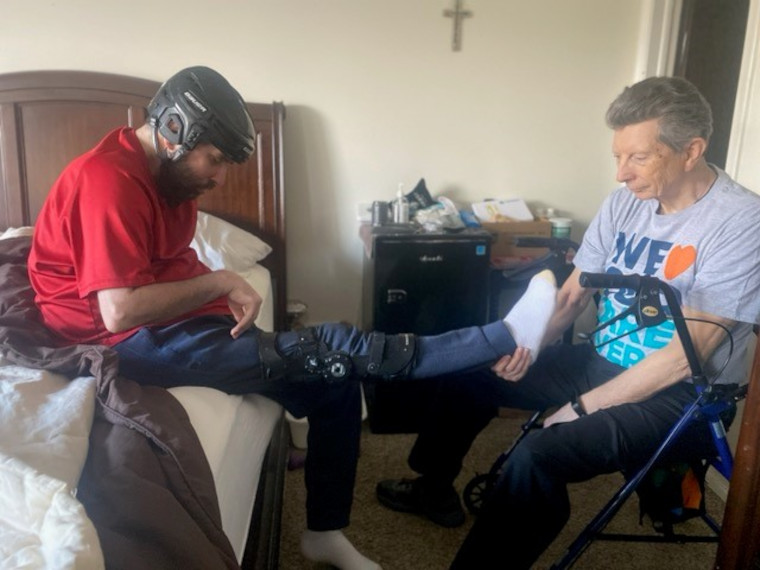Caring for adult loved ones in 2023
Written by Tanya Terry According to a national survey, nearly 90% of adults over age 50—across all age, race, income, and health status categories-said they wanted to remain at home and age in place in 2021 (Source: captialcaring.org.). The same source notes roughly 4 in 10 (38%) family caregivers said...

Written by Tanya Terry
According to a national survey, nearly 90% of adults over age 50—across all age, race, income, and health status categories-said they wanted to remain at home and age in place in 2021 (Source: captialcaring.org.). The same source notes roughly 4 in 10 (38%) family caregivers said they found their situation highly stressful, however.
The Courier had the opportunity to speak to Scott Hill, owner, and Shannon Taylor, director of home care, for Right at Home Genesee County about why adults tend to want to age in place and what our readers need to know when making decisions about adult care.
The first step is knowing the difference between the many different types of adult care that are available today.
In-home care is primarily when a client remains in their home and receives care,” explained Taylor.
This allows the client to maintain their normal routine in a familiar environment as much as possible,” Hill added. “Change can be stressful, especially when that change is imposed upon you, which is what is often happening when health conditions or aging require care to be provided. One of the benefits of in-home care is that it minimizes the amount of change, and therefore stress, that the client must endure.”

Taylor explained hourly adult respite care is typically for a family member that needs “respite,” in other words rest or relief, from taking care of the client on their own.
“In-home care can provide this rest/relief for a few hours or a few days, or however long is desired,” Taylor added.
She explained independent living is a community, such as an apartment complex, designed for older adults who don’t require medical attention to enjoy a life of recreational and social activities.
“If they do require any type of light medical attention, it would be brought in by a private company,” she added.
Palliative care is intended to provide comfort to someone experiencing significant pain with a serious illness, but also often along with the goal of improving their health condition, according to Taylor.
She stated hospice care is basically focused on providing comfort for someone with a serious illness who no longer has curative options or has chosen not to pursue treatment because the side effects outweigh the benefits and is, therefore, approaching the end of life.
Assisted living is a facility where one typically has their own living space with a kitchen, within a larger facility, according to Taylor. She added facilities also sometimes have social activities.
“A nursing home provides care 24/7, and most residents are admitted long term, although some might be there for short-term rehabilitation.”
Hill spoke to the Courier about the importance of asking your care provider if they have worker’s compensation insurance.
“If they don’t then YOU take on additional legal risk and potential financial liability should an accident occur,” he stated. “It is also very important to confirm that your care provider performs screening and background checks on their employees.”
Taylor stressed the importance of the person who creates and oversees the Plan Of Care being skilled and qualified to do so.

“Right At Home has a Registered Nurse (RN) on staff,” she said. “The RN assesses the potential client inside their place of residence, completes a full evaluation of the client’s needs and based on those findings the RN creates the Plan of Care. Once the Plan of Care is created the RN reviews with the service coordinator and at that time the coordinator matches the caregiver with the client needs.”
Hill said it’s important to understand that someone who requires any type of care is already in a stressful situation, and that stress might also be felt by family members.
“It’s critical to find a care provider who can relieve some of this stress and not add to it,” he advised. “This means a provider who is insured and will not place you under any legal risk of potential financial liability, and who has the qualifications to create and oversee an appropriate Plan Of Care. If you can find a provider that has earned a certification respected by the healthcare industry, such as the “Joint Commission Certification,” that is ideal. The Joint Commission is an independent, not-for-profit organization, and the nation’s oldest and largest standards-setting and accrediting body in health care.”







